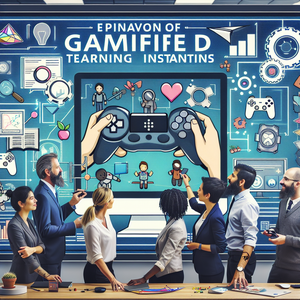
Navigating Career Opportunities in Educational Technology: A Closer Look at Roles at Clever and Beyond
The educational technology landscape is rapidly evolving, driven by innovation and the increasing integration of technology in teaching and learning. Organizations like Clever are at the forefront of this transformation, providing educators and students with essential tools that enhance the learning experience. Clever's user-friendly platforms, featuring secure single sign-on capabilities and efficient resource management, are redefining how educational content is accessed and utilized in K-12 environments. As the demand for effective educational technology grows, so does the need for skilled professionals across various roles. This article explores the diverse career paths in this dynamic field, highlighting specific roles, their responsibilities, and the qualifications needed to thrive in them.
Job Summaries:
Educational Technologist:
- Educational technologists design and implement tech-based learning solutions.
- Ensuring tools cater to the unique needs of educators and students.
- Responsibilities include training teachers on digital resources.
- Assessing the effectiveness of educational technologies.
- Typically requiring a degree in education or a related field.
- This role demands strong communication and a passion for enhancing learning through technology.
Software Engineer:
- Software engineers develop the software that underpins educational platforms.
- Designing, coding, and debugging applications are key responsibilities.
- A degree in computer science or a related field is essential.
- Proficiency in programming languages such as Python or Java is necessary.
Data Analyst:
- Data analysts focus on transforming data into actionable insights to inform product development and educational strategies.
- They require expertise in statistical software and data visualization tools.
- A degree in statistics or a related field is often necessary.
UX/UI Designer:
- UX/UI designers create engaging educational platforms by conducting user research and designing interfaces that prioritize usability.
- A background in graphic design or human-computer interaction is beneficial.
Instructional Designer:
- Instructional designers develop educational programs leveraging technology to enhance learning experiences.
- They create online courses and materials, requiring a degree in instructional design or education.
Technical Support Specialist:
- Technical support specialists assist educators and students in using platforms like Clever.
- Troubleshooting issues and providing training.
- Strong problem-solving skills are essential.
- A background in IT is essential.
Product Manager:
- Product managers oversee the lifecycle of educational technology products.
- Defining product vision and prioritizing features.
- A background in business or technology is essential.
Sales Executive:
- Sales executives build relationships with educational institutions
- Promote products like Clever
- Require strong interpersonal skills
- Need a degree in business or a related field
Content Developer:
- Content developers create educational materials that adhere to curriculum standards while engaging students.
- A background in education or instructional design is often required.
Data Privacy Officer:
- Data privacy officers ensure compliance with regulations regarding student data security.
- Developing policies and conducting audits.
- A degree in law or a related field is typically required.
Customer Success Manager:
- Customer success managers ensure that educators achieve their goals using educational platforms.
- Providing support and conducting training.
Digital Marketing Specialist:
- Digital marketing specialists develop strategies to promote educational technology products.
- Managing online content.
- Analyzing performance metrics.
Compliance Officer:
- Compliance officers ensure adherence to legal standards affecting educational technology.
- Monitoring policies and providing training on compliance issues.
Game Designer:
- Game designers create educational games.
- Games enhance learning through interactive experiences.
- Typically require a degree in game design or computer science.
Learning Experience Designer:
- Learning experience designers craft effective online learning environments
- Applying insights from cognitive psychology
- Applying insights from instructional design
Community Engagement Coordinator:
- Community engagement coordinators build relationships between educational technology companies and the communities they serve.
- Organizing events and gathering feedback.
Quality Assurance Tester:
- Quality assurance testers ensure that educational software functions correctly.
- Conducting tests and collaborating with developers.
Training Specialist:
- Training specialists develop programs for educators using educational technology platforms.
- Creating instructional materials.
- Conducting workshops.
Research Analyst:
- Research analysts evaluate the effectiveness of educational technologies
- Gathering data and analyzing trends.
Policy Advocate:
- Policy advocates work to influence education policy
- Promote technology use in schools
- Engage with policymakers
- Conduct research
The educational technology sector is ripe with diverse career opportunities for individuals eager to make a positive impact. With the increasing emphasis on technology integration in education, professionals in this field are uniquely positioned to shape the future of learning for countless students. As the industry continues to grow, exploring various roles—from technical positions to educational support—can lead to fulfilling careers that contribute to a transformative educational landscape.
Explore More Jobs

